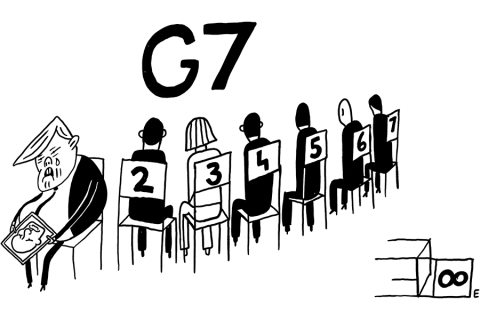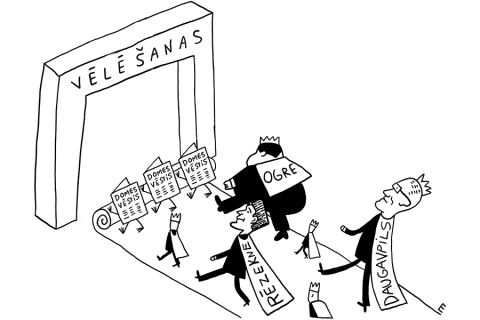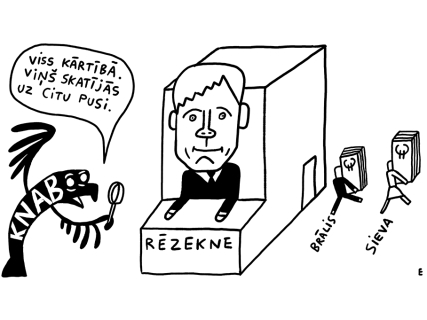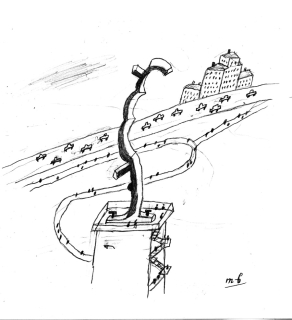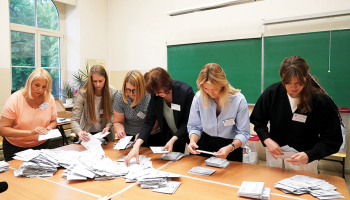Žurnāls Ir | Svarīgākais politikā, ekonomikā un kultūrā
Jaunākie raksti

Kā horeogrāfe Līga Liberte bohēmu nomainīja uz dzīvi laukos
Dejotāja un horeogrāfe Līga Liberte stāsta par cīņu ar depresiju un to, kāpēc «Rīgas caca» pārvākusies uz dzīvi laukos

VIDEO: Ko Eiropa var darīt saistībā ar “Shein” un “Temu”?
Eiropas Savienība cenšas apturēt Ķīnas e-komercijas platformu popularitātes pieaugumu.
Sāc savu dienu ar uzticamu svarīgāko ziņu apkopojumu!
Īsi par svarīgāko ik rītu — pieraksties jaunumu vēstulei Ir Svarīgākais!

Karš nav beidzies
Šogad aprit 80 gadu, kopš beidzās Otrais pasaules karš — līdz šim pēdējais mēģinājums reizi par visām reizēm apvienot Eiropu ar militāru spēku. Trauma, ko tas atstājis, joprojām neļauj Eiropai stingri nostāties pret Krievijas agresiju


Saulkrastu superpīrāgi
Saulkrastu uzņēmuma Superpīrāgs īpašniece Ilze Kalviša savu biznesu savulaik sāka, bruņojusies ar pavārgrāmatu un paļāvību, bez mazākās pieredzes konditorejā un visu nepieciešamo aizņemoties
Raidieraksti
Karikatūra
Personības
Viedokļi
Recenzijas
Pētījumi
Eiropā
Bizness un ekonomika

Pāļu injekcijas pamatiem
Mikropāļi ir samērā jauna būvniecības tehnoloģija, kuru Latvijā un Igaunijā jau 25 gadus attīsta Daiņa Mūsiņa uzņēmums. Savulaik četri gadi nostrādāti arī Apvienotajos Arābu Emirātos, bet tagad tuvākais mērķis ir iespiesties Lietuvas tirgū

Infrastruktūras problēmu risinātāji
Uzņēmums Carmine Red IT projektē un uzstāda IT infrastruktūru. Sākotnēji izveidots kā mākoņpakalpojumu sniedzējs, tas ir pielāgojies tirgum, kurā uzņēmumi joprojām vēlas savas iekārtas

Lauž stereotipus par to, kas ir iespējams
Tehnoloģiju jaunuzņēmums ENGYcell veido programmatūru, kas pārvalda bateriju enerģijas uzkrāšanas sistēmas, nodrošinot iespēju biznesiem gan ietaupīt, gan nopelnīt
Populārākie raksti
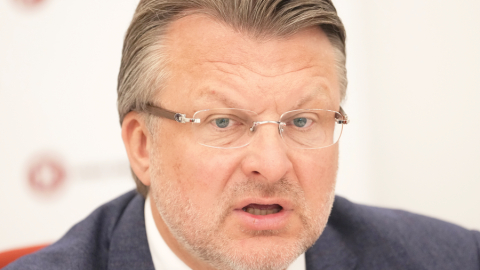
Kādas ir Šlesera biznesa intereses Rīgā
Kādas ir mēra kandidāta Aināra Šlesera biznesa intereses Rīgā? Viņa ģimenei galvaspilsētā pieder prāvas platības Andrejsalā un Skanstē, bet ostas biznesi kara sankciju dēļ ir iestrēguši

Kurš kavē Rail Baltica pamattrases būvniecību
Kāpēc Rail Baltica nacionālais ieviesējs joprojām nav devis zaļo gaismu būvdarbu sākšanai dzelzceļa pamattrasē, lai gan finansējums ir pieejams

Mērs Vilnis Ķirsis: koalīcijai ir tikai divi varianti
Jaunās Vienotības saraksta līderi Vilni Ķirsi intervējam viņa kabinetā Rīgas domē. Domes priekšsēdētājs uzskata, ka vēlēšanās ir tikai divi varianti — vai nu JV, NA un Progresīvo vairākums, vai varu iegūs promaskaviskie spēki ar Šleseru priekšgalā

Kā pasaules apceļotājs Kārlis Bardelis nepadodas ļoti smagai diagnozei
Pasaules apceļotājs Kārlis Bardelis (40) gada sākumā piedzīvoja insultu un viņam atklāja ļaundabīgu smadzeņu audzēju. Ārstu prognozes nav spīdošas, bet Kārlis un ģimene nav gatavi padoties

Kurš vadīs Rīgu?
Visticamāk, kāds no šiem partiju līderiem. Jaunākie reitingi cerības pārvarēt 5% barjeru dod septiņiem sarakstiem, vēl trīs pēdējie spējuši savākt vismaz 2% balsu. Ir piedāvā īsu pārskatu par viņu galvenajiem solījumiem
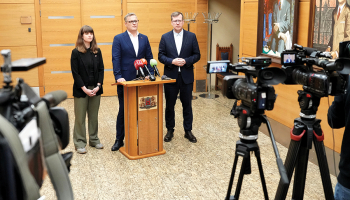
Šlesers nebūs mērs, bet kādas ir Kleinberga izredzes?
Aināra Šlesera plāns pārņemt Rīgu ir izgāzies. Balsu vairākums domē ir četru eiropeisko partiju koalīcijai, ko sācis veidot Progresīvo līderis Viesturs Kleinbergs. Vai viņš būs nākamais mērs?

Prokurore: Stukānam vajadzēja vēl vienu apsūdzēto
Ģenerālprokurors Juris Stukāns rīkojies neētiski, bet tas nav pamats viņa atlaišanai, pārbaudē secinājuši Augstākās tiesas senatori. Prokurores Viorikas Jirgenas stāstītais gan atklāj uztraucošu ainu Ģenerālprokuratūrā
- Dzīve
- 29.05.2025.
- Agnese Meiere
Kā pasaules apceļotājs Kārlis Bardelis nepadodas ļoti smagai diagnozei

- Analīze
- 05.06.2025.
Kurš vadīs Rīgu?





